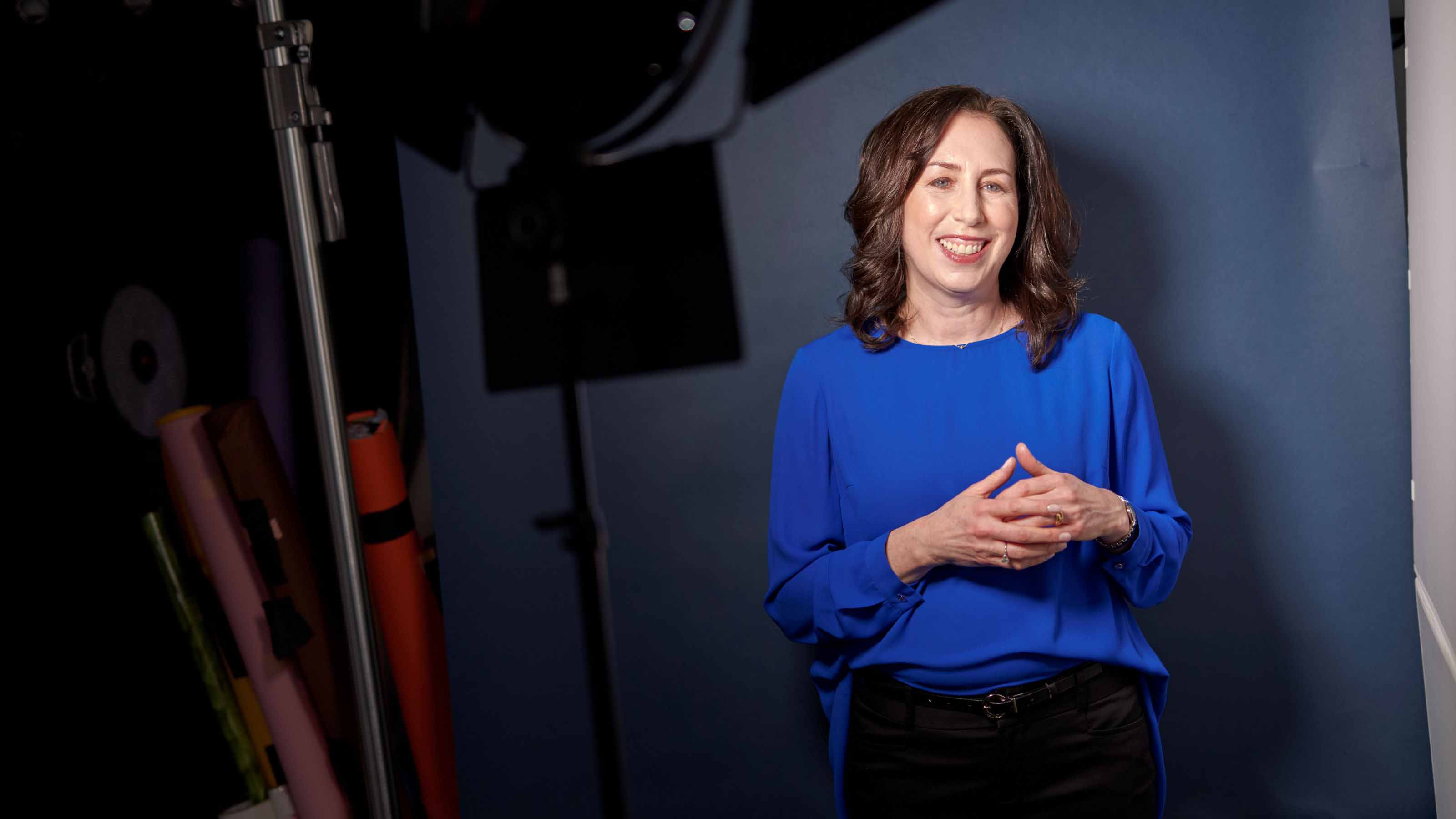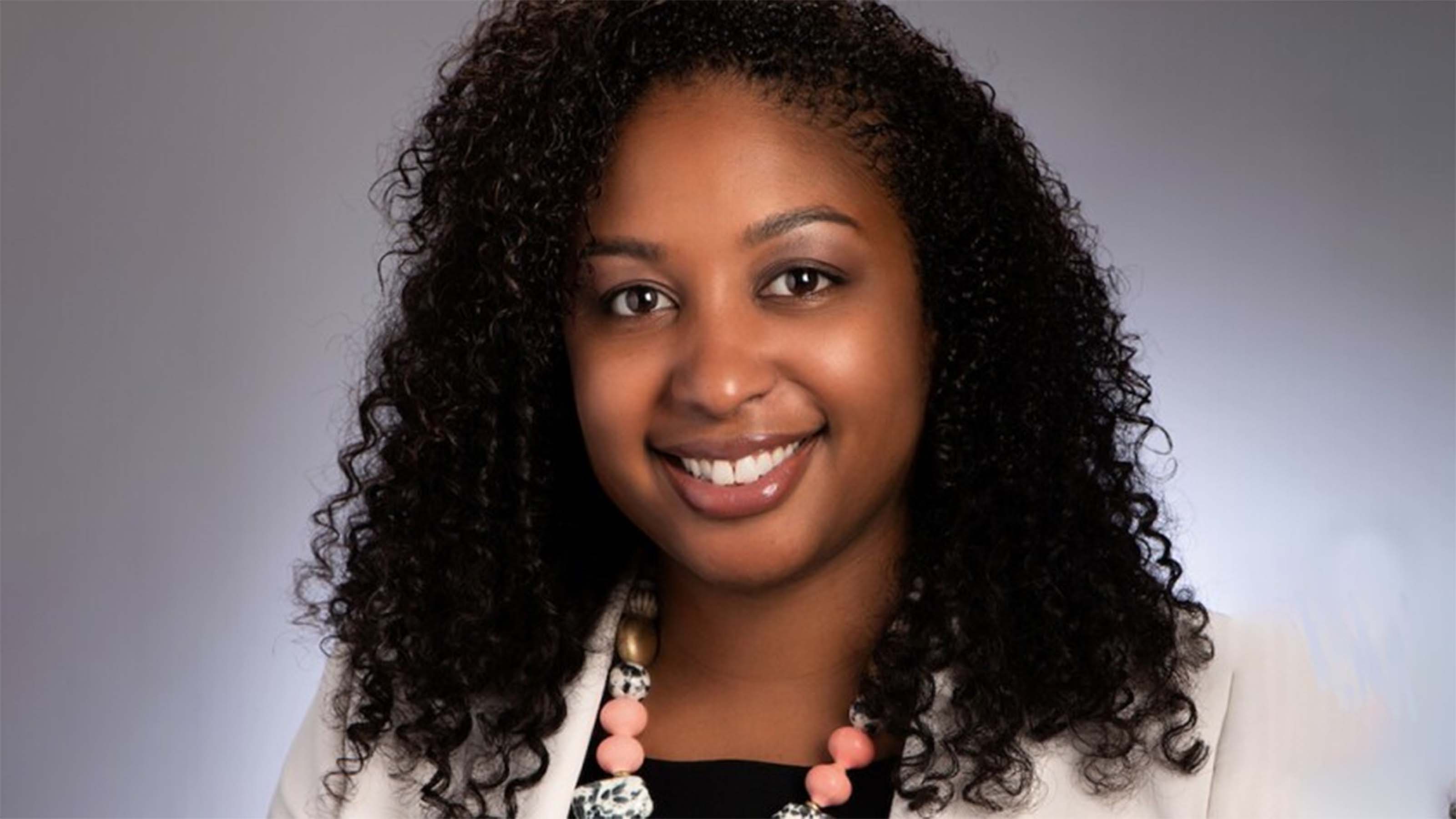Money Moves to Make Right Now in the Wake of the Coronavirus Outbreak
Physician and certified financial planner Carolyn McClanahan joins our hosts Sandy Block and Ryan Ermey to discuss smart financial strategies in these uncertain times. Also, the pair delves into smart ways to spend your stimulus check.

Profit and prosper with the best of Kiplinger's advice on investing, taxes, retirement, personal finance and much more. Delivered daily. Enter your email in the box and click Sign Me Up.
You are now subscribed
Your newsletter sign-up was successful
Want to add more newsletters?

Delivered daily
Kiplinger Today
Profit and prosper with the best of Kiplinger's advice on investing, taxes, retirement, personal finance and much more delivered daily. Smart money moves start here.

Sent five days a week
Kiplinger A Step Ahead
Get practical help to make better financial decisions in your everyday life, from spending to savings on top deals.

Delivered daily
Kiplinger Closing Bell
Get today's biggest financial and investing headlines delivered to your inbox every day the U.S. stock market is open.

Sent twice a week
Kiplinger Adviser Intel
Financial pros across the country share best practices and fresh tactics to preserve and grow your wealth.

Delivered weekly
Kiplinger Tax Tips
Trim your federal and state tax bills with practical tax-planning and tax-cutting strategies.

Sent twice a week
Kiplinger Retirement Tips
Your twice-a-week guide to planning and enjoying a financially secure and richly rewarding retirement

Sent bimonthly.
Kiplinger Adviser Angle
Insights for advisers, wealth managers and other financial professionals.

Sent twice a week
Kiplinger Investing Weekly
Your twice-a-week roundup of promising stocks, funds, companies and industries you should consider, ones you should avoid, and why.

Sent weekly for six weeks
Kiplinger Invest for Retirement
Your step-by-step six-part series on how to invest for retirement, from devising a successful strategy to exactly which investments to choose.
Ryan Ermey: Whether you're just starting out or nearing retirement, the COVID-19 outbreak has affected how you should manage your money. Certified financial planner and medical doctor Carolyn McClanahan helps us make sense of things for people of all ages and situations in our main segment. On today's show, we'll give suggestions for how to spend your stimulus check and delve into our mail bag to answer some listener questions. That's all ahead on this episode of Your Money's Worth. Stick around.
- Episode Length: 00:32:34
- SUBSCRIBE: Apple Google Play Spotify Overcast RSS
Ryan Ermey: Welcome to Your Money's Worth. I'm Kiplinger's associate editor Ryan Ermey joined as always by senior editor Sandy Block, albeit remotely. Sandy, how are you?
Sandy Block: I'm good, Ryan. How are you?
From just $107.88 $24.99 for Kiplinger Personal Finance
Become a smarter, better informed investor. Subscribe from just $107.88 $24.99, plus get up to 4 Special Issues

Sign up for Kiplinger’s Free Newsletters
Profit and prosper with the best of expert advice on investing, taxes, retirement, personal finance and more - straight to your e-mail.
Profit and prosper with the best of expert advice - straight to your e-mail.
Ryan Ermey: I am pretty decent. Now we are recording here, we're doing a little podcast magic here. Our interview with Carolyn McClanahan we recorded on Wednesday. We -- the two of us -- are recording here on Sunday, which has given us a little bit more time to get some perspective on this stimulus package that should be coming a lot of people's way here pretty soon.
Sandy Block: That's right, Ryan. This $2 trillion stimulus package -- which we'll be talking about I suspect for weeks and weeks and weeks, because it's got so many provisions but the one that I think most people are going to be most interested in is the checks. Millions of Americans are going to receive a check for $1,200 for adults. If you have kids you could get $500 per check. So depending on how you file your taxes and your income, which we'll be discussing in the future in more detail, very soon a check could be in the mail and frankly a lot of people really do need that money.
Ryan Ermey: Exactly. So we will probably have our guy Rocky Mengle on. That's the Kiplinger.com -- your counterpart pretty much on Kiplinger.com in terms of people who know their stuff about taxes. We'll probably have him on here next week. In the meantime, we do have a stimulus check calculator, which we will put in the show notes so that people can find out how much they're going to be possibly getting here. And we have some advice up online that you wrote Sandy about good ideas for how you should put this money to work.
Ryan Ermey: So there you have it. Go to Kiplinger.com. We'll put it in the show notes, as well. And check out all of Sandy's advice for how to spend your stimulus. Like I said we also have the calculator up to figure out about how much you're likely going to be getting. And we just have a ton of really up to the minute financial coverage related to this pandemic on the website. We'll be sure to link a ton of it in the show notes, but just be sure to go to Kiplinger.com and check it all out. Coming up, certified financial planner and physician Carolyn McClanahan tells folks of all situations how to deal with the outbreak financially, don't go anywhere.
Ryan Ermey: We are back and we're here with Carolyn McClanahan. She's the founder of Life Planning Partners. She is a certified financial planner, she is a medical doctor and she's here with us now. Carolyn, thank you so much for coming on.
Carolyn McClanahan: My pleasure to be here.
Ryan Ermey: So, obviously things have been going a little bit crazy here with financial markets. I've certainly had people calling me asking what they should do. What would you say is the headline piece of advice that everyone in this environment should be keeping in mind?
Carolyn McClanahan: Well, the most important thing is to take a deep breath and check your pulse and know that you're still there. And the problem with the markets is people always panic when they go down and the time that they need to think about what to do in the markets is before things like this hit because we know that we're going to have market turmoil at this, that's what the stock market does. So my number one piece of advice to people is never take more risk than you can afford to take -- both psychologically and financially. And if you want, we can go down the road of well what happens if you didn't do that advice first and what do you do if you're already too heavily invested now.
Sandy Block: Well, in fact Carolyn that leads up to the next question. We talk a lot about risk tolerance and risk capacity, but people who are nearing retirement have seen a big decline in their nest egg and maybe some of them were invested more aggressively than they should have been because the market was so generous for so long. What are you telling those types of people to do?
Carolyn McClanahan: Well, all along I have said that your safest asset is your human capital so your ability to work. And if those people have the ability to work at least part-time or something which I just think people should do naturally because we never know how long the market's going to do well then they should continue to work. And in fact I have railed a long time about this whole thing of retirement at age 65 is just wrong. Back when they invented retirement with Social Security in the 1930s the average age of life expectancy was 65 and that's what age they picked back then for retirement. Now that we're living into our late 80s and a lot of people living in their 90s and 100s. I really think people should work as long as possible, because it keeps them financially healthier, physically healthier and mentally healthier.
Ryan Ermey: In terms of people's actual accounts if they're looking at their dashboard and assessing how things have gone how can people make sure that they're invested in line with their appropriate risk tolerance and risk capacity?
Carolyn McClanahan: So the first thing I say to people is, "How safe is your job and your ability to work?" And if it's safe you can take a little bit more risk, but if your job could stop on a dime and if you're in an industry that could go away it's more important to have more safety built into your portfolio. So to me people should have at least five years worth of fixed income in their portfolio that way when things bottom out you know you have plenty of time for the stock portion to recover.
Carolyn McClanahan: And for the people who already were too aggressively invested the key is you've got to decide what do you need to do right now to stem the tide just in the short term. For example, if you are 100% stocks and you need money to live on the next year figure out how much that is and only sell that amount. Because as we've seen the market the past couple days has gone back up and we don't know what's going to happen in the future. Is it going to go up and down or is it going to start to recover as we get on the other side of this epidemic? So don't sell out more than you have to to stay afloat in the current situation.
Sandy Block: Carolyn, one of the reasons we were so eager to have you on is that you are a financial planner and also a doctor. I wonder what lessons this pandemic has taught us about the intersection between personal and financial health?
Carolyn McClanahan: Well, the key is and I'm going to get really nerdy here and this is something I live and breathe and have talked about for a long time is both the markets and the medical system and viruses they're what's called complex adaptive systems. And what that means is we don't know what we don't know and so we don't know when things are going to fall apart. And something that seems very major may cause very little disruption whereas something that seems very minor may cause a huge disruption.
Carolyn McClanahan: And one thing that I've talked about both in financial planning and both in medicine is that the important thing is do what you can to stay resilient -- so that when bad things happen that we can't predict you're more able to weather the storm. So from a health perspective, that's why people should eat right, exercise, do what they can to maintain good health. Don't do too many toxic substances and stay away from toxic people. And then that's going to put you in a better position when bad things happen. From the financial side that's having the emergency fund, making certain you're insured appropriately, not having too much debt and trying to make certain you maintain your career abilities so that if the world doesn't work out you have skills that are available to keep continuing working to maintain your financial stability.
Ryan Ermey: The outbreak has caused a lot of job loss, a lot of salary reduction. People aren't getting the same kind of hours as they used to. And so, I guess a two part question here. One is if this hasn't happened to you yet, but you're looking out onto the horizon and thinking, "Okay, this may be a possibility," what should you be doing to prepare? And if you've already lost your job and crucially if you've lost your health insurance what should you be doing then?
Carolyn McClanahan: Congress just agreed on a new stimulus package. This is the third one and I read the preliminary bills and so hopefully in the new package this is still in there in that they're planning a two month open enrollment period for the Affordable Care Act. People can actually sign up for insurance through there and if they've lost their job, they should qualify for tax credits and that will help them make the insurance affordable. If you have no income going forward and you have little income from the beginning of the year, the insurance should be very inexpensive. So I encourage people to look into that and hopefully they kept that in this bill that just passed.
Ryan Ermey: All right. That's something that we're going to talk about a little bit more in depth in the next segment, but before you go Carolyn is there anything, I know we talked about a headline thing here across the start but just something that people should really be carrying with them financially as we wade deeper into this whole situation?
Carolyn McClanahan: Well, there are a lot of things that people should be doing. So the thing that, I often quote Hindu God Shiva, "From all destruction may great things be reborn." And this is a really bad time and we have to acknowledge that, but we also have to look for the good of what can come out of this. So, my hope is I have advocated for a strong republic health and community health system for many years so hopefully we do that and rebuild that going forward. I think people need to take stock of their relationships and their sense of community and people need to get more involved in their community because when it comes down to it's the people around us who can help each other through these hard times. So making certain our communities are strong and that we're doing what we can to take care of ourselves both financially and physically because when you take care of yourself it makes it much easier to be able to help others.
Ryan Ermey: Well, that's all fabulous advice Carolyn. Thank you again for coming on. Carolyn McClanahan, she's the founder of Life Planning Partners. You can also find an interview with her in the upcoming issue of Kiplinger's. Carolyn, thank you so much for coming on.
Carolyn McClanahan: My pleasure. Thank you for having me.
Ryan Ermey: After the break, Sandy and I answer reader questions on health insurance and retirement account transfers. Be right back.
Ryan Ermey: We are back and before we go we have been asking listeners to send in any and all questions that they may have pandemic-related or otherwise, any kind of financial questions that we can run down the answers for you. And so we have a couple of questions and answers from our mailbag, Sandy, so let's get right in. The first is from Dave from Florida he writes in... I have modified this a little bit, anyone who writes in we don't want to give away details that would get anyone in trouble with a prospective employer. You'll see why I changed some things around here.
Ryan Ermey: Dave from Florida, "My son has worked for his employer for 14 years starting out when he was a freshman in high school. Last Monday the business laid off the entire staff and at the same time also eliminated their healthcare coverage. What can he do? He has been paying health insurance for his wife for several years. She has health issues and it's an imperative to have health insurance she is now 32, he is 31."
Ryan Ermey: So I talked to Wayne Sakamoto who is an independent health insurance agent and consultant in Florida where our friend Dave is writing in from. And also Deborah Gordon who has written about this on Kiplinger.com, she has a piece up What to Do If You Lose Your Health Insurance, which we'll also be putting up in the show notes. And we thought this would be a good one to take a look at because a lot of people are probably going through something similar.
Ryan Ermey: Now, the first thing and this isn't an option for Dave's son but if you were laid off, you don't have insurance, the first thing that you should probably look into is if you have a spouse who works see if you can get on your spouse's insurance. Now this isn't an option in this case, but if you're worried that you could soon lose your job have your spouse or partner contact their human resources department to see if you can join their plan. You probably won't be able to get on the plan without a change in your benefit status, but you should go ahead and get the details now so that you can be prepared should that eventuality arise.
Sandy Block: Right. And this is probably the least expensive option for most people because you're joining a group plan so you're going to get group rates if you've lost. Some companies will charge a surcharge if you put your spouse on the plan but that's only if the spouse has his or her own insurance which it would not be the case if someone loses a job. So this is certainly the first one that you want to look at if you're fortunate enough to have someone else in the house who has insurance.
Ryan Ermey: Now Dave's son's wife, Dave's daughter-in-law, can't work because of her illness so that's out for him. So the next option for him is to explore COBRA, which I'm sure a lot of people have heard of, it stands for the Consolidated Omnibus Budget Reconciliation Act. Did you know that Sandy?
Sandy Block: Yeah, I've written about COBRA since I think it was invented.
Ryan Ermey: I'll tell you what though it took me about 16 times writing about LIBOR before I could remember what that stood for or indeed what the hell it was. So anyway, COBRA allows you to stay on your employer's plan after you've been laid off for as long as 18 months. Now because employees under this system pay the full cost of health insurance premiums without the employer contribution COBRA tends to be very, very expensive, often prohibitively expensive for a lot of people. "On an annual basis," writes Deborah Gordon, "The average employer sponsored insurance premium for family coverage was more than $20,000 in 2019 and more than $7,000 for an individual." The costs may be especially hard to bear, but Sakamoto did note that the coverage you get could be worth it and you can get very comprehensive coverage possibly through COBRA. And if someone in your household has a chronic condition that you already know that person is going to need expensive care COBRA may be a viable option worth exploring.
Sandy Block: And oftentimes I think where COBRA works best is if, and I don't know that this is the situation here, as a bridge. If you know you're only going to be uninsured for a month or two it might be worth paying the premium to keep your doctors, to keep your insurance until you get on another good employer group plan. I think that's how most people tend to use COBRA most effectively over a longer term is. As you said it's quite expensive.
Ryan Ermey: And then the other thing to look into in the immediate term here is to see about your state's Obamacare exchange. Now, we talked a little bit with Carolyn about the possibility that the enrollment period is going to expand but even if it didn't, losing your job is considered a qualifying event which allows you to enroll outside of the normal enrollment window. Depending on where you live in Florida, depending on where Dave's son lives in Florida, the only option may be Florida Blue. You don't have a ton of options in terms of different insurance. It doesn't give you a whole lot of room to shop around, but depending on the financial situation Dave's son may qualify for free or subsidized insurance. And even if it's just for a transitional period these programs provide comprehensive coverage often at a reduced cost so he should go visit Healthcare.gov or Florida's health insurance marketplace to learn more about his specific situation.
Ryan Ermey: And the last thing I wanted to mention is that over the longer term if Dave's daughter-in-law is unable to work because of her disability, she should consider -- and this is what Sakamoto told me -- applying for Medicare disability which she may qualify for given the severity of her condition. It's going to be a longer process, he recommends finding an attorney or consultant who specializes in these kinds of applications, but it may be worth it over the long run.
Ryan Ermey: So we have one more question here Sandy and it was a good one from Randall from Ohio. "And for broad context," he says, "Assume a more typical market absent current market volatility." In essence, the couple in question will wait for some degree of recovery before acting. So he says, "A professor retiring after a 32 year career has accumulated over $1 million in her 403(b). To be freed of constraints, limited investment options and higher fees in the 403(b) she plans to do a rollover to a traditional IRA. Unlike IRA to IRA rollovers direct in kind rollovers, in other words retaining shares from a 403(b) to an IRA are forbidden. These specific rollovers must be transacted in cash." She has two investments, a conservatively staged targeted fund and a short term bond fund. Our question is this, at what frequency and over how long a period should she cash in shares? Should she sell a percentage of holding each day of the week until done? What percentage? Sell only on one, two or three days a week, get it all done rapidly or spread it out over several weeks or months?
Ryan Ermey: So I blasted this, because Sandy and I didn't know the answer off the top of our heads, to a big network of certified financial planners and they were pretty split. But, Sandy, you and I pretty much agree. There were two schools of thought -- one basically saying that we should dollar cost average in investments in and out of this and one saying that you should do it all at once.
Ryan Ermey: So someone like Daniel Flanagan from Framingham, Mass., says, "When a client is interested in investing new cash into the market we generally recommend dollar cost averaging into the market by splitting up the total planned investment into three or four tronches to be invested over three or four months. Since the IRS requires a liquidating an employer provided retirement plan such as the 401(k) or 403(b) prior to rolling it into an IRA a dollar cost average out strategy would make sense as well if permitted by the plan." And we had a couple people mention different kinds of timing here but I think you and I ultimately agreed with people who thought you should basically do things all at once.
Sandy Block: Right. And I think there have been some studies that have compared these approaches and found that over the long term the lump sum gets you a higher return because basically the money is working for you longer. If you dollar cost average you're trying to time the market. And some people like to do this because they think it reduces their risk and sure you could put it all in, move it all into an IRA and then tomorrow the market drops another 2,000 points sure that could happen. But over the longterm, over a long period of time, the longer you're in the market the better your results. And I think rather than try and figure out how to break it up, which tronch to put in this I just think just move over the whole thing, figure out how you want to invest it, make sure that those investments are in line with your risk tolerance and your plan for retirement, and just move on.
Ryan Ermey: And it sounds like hers are conservatively staged target date funds, which as a reminder a lot of people have these but they're funds that hold a mix of stocks and bonds with that mix grows more conservative, so essentially more tilted toward bonds over time and as well as a bond fund so it seems like she's invested pretty appropriately. Russell G. Robertson who is a CFP in Springfield, Va., I think sums it up pretty nicely he says, "I like simple. Assuming she is 59 and a half or won't need access to the money right away -- I would roll it all over into an IRA either mutual fund or brokerage. It would have to be liquidated and moved in cash but she could very quickly reinvest that money into an appropriate asset allocation which could be similar to what she has now to include target funds. There are no tax implications for selling within her 403(b) in order to transfer to an IRA."
Ryan Ermey: So there you have it. Good advice and a number of CFPs joined in that kind of advice. So thank you to all of the CFPs who took time to write back to me and explain the situation. And thank you to our listeners who took time to write in. As I said at the top of the segment, Sandy and I are happy to dig into any financial situations or questions that may be arising for you. So please e-mail us podcast@kiplinger.com, Ryan_Ermey@kiplinger.com, sandra_block@kiplinger.com. Keep the questions coming in, we are happy to answer them for you.
Ryan Ermey: That'll wrap it up for this episode of Your Money's Worth. Thank you for staying with us. For show notes and more great Kiplinger content on the topics we discussed on today's show visit Kiplinger.com/links/podcasts. You can stay connected with us on Twitter, Facebook or by e-mailing us at podcast@kiplinger.com. And if you liked the show please remember to rate, review and subscribe to Your Money's Worth wherever you get your podcasts. Thanks for listening.
Links and resources mentioned in this episode
- TOOL: Kiplinger's Stimulus Check Calculator
- Your 2020 Stimulus Check: How Much? When? And Other Questions Answered
- 6 Money-Smart Ways to Spend Your Stimulus Check
- SPECIAL REPORT: Kiplinger's Coronavirus Coverage
- Sign Up for Kiplinger's Step Ahead E-Mail Newsletter for COVID-19 Updates
- What to Do If You Lose Your Health Insurance During the Coronavirus Crisis
Profit and prosper with the best of Kiplinger's advice on investing, taxes, retirement, personal finance and much more. Delivered daily. Enter your email in the box and click Sign Me Up.

Block joined Kiplinger in June 2012 from USA Today, where she was a reporter and personal finance columnist for more than 15 years. Prior to that, she worked for the Akron Beacon-Journal and Dow Jones Newswires. In 1993, she was a Knight-Bagehot fellow in economics and business journalism at the Columbia University Graduate School of Journalism. She has a BA in communications from Bethany College in Bethany, W.Va.
-
 4 Estate Planning Documents Every High-Net-Worth Family Needs
4 Estate Planning Documents Every High-Net-Worth Family NeedsThe key to successful estate planning for HNW families isn't just drafting these four documents, but ensuring they're current and immediately accessible.
-
 Love and Legacy: What Couples Rarely Talk About (But Should)
Love and Legacy: What Couples Rarely Talk About (But Should)Couples who talk openly about finances, including estate planning, are more likely to head into retirement joyfully. How can you get the conversation going?
-
 How to Get the Fair Value for Your Shares in This Situation
How to Get the Fair Value for Your Shares in This SituationWhen a sale of substantially all corporate assets is approved by majority vote, shareholders on the losing side of the vote should understand their rights.
-
 PODCAST: Tax Breaks for College Finance with Kalman Chany
PODCAST: Tax Breaks for College Finance with Kalman ChanyPaying for College Paying for (ever-pricier) college is a challenge that this consultant meets head on with highly specific guidance.
-
 PODCAST: Car-Buying in an Inflated Market with Jenni Newman
PODCAST: Car-Buying in an Inflated Market with Jenni NewmanBuying & Leasing a Car With cars both scarce and expensive these days, what to do if you want – or need – a new ride? Car-buying strategist Jenni Newman of Cars.com shares some tips. Also, more on the magical 9% savings bond.
-
 PODCAST: How to Find a Job After Graduation, with Beth Hendler-Grunt
PODCAST: How to Find a Job After Graduation, with Beth Hendler-GruntStarting Out: New Grads and Young Professionals Today’s successful job applicants need to know how to ace the virtual interview and be prepared to do good old-fashioned research and networking. Also, gas prices are high, but try a little global perspective.
-
 PODCAST: Is a Recession Coming?
PODCAST: Is a Recession Coming?Smart Buying With a lot of recession talk out there, we might just talk ourselves into one. We take that risk with Jim Patterson of The Kiplinger Letter. Also, dollar stores: deal or no deal?
-
 PODCAST: This Couple Tackles Love and Money as a Team
PODCAST: This Couple Tackles Love and Money as a TeamGetting Married Fyooz Financial, the husband and wife team of Dan and Natalie Slagle, have carved out a niche advising other couples with the money questions that come with pairing up. Also, where is this troubled stock market headed?
-
 PODCAST: Which Documents to Keep, Which to Shred and Which to Scan
PODCAST: Which Documents to Keep, Which to Shred and Which to Scanhome insurance A speedy recovery from disaster can depend on your recordkeeping. Kiplinger’s Personal Finance writer Rivan Stinson tells us how to get our papers in order.
-
 PODCAST: High Gas Prices with The Kiplinger Letter’s Jim Patterson
PODCAST: High Gas Prices with The Kiplinger Letter’s Jim Pattersoncars Why are we paying so much more at the pump? How long will it last? What can you do? Plus: Congress is making changes to retirement-savings rules again.
-
 PODCAST: The Future of Certified Financial Planners with Kamila Elliott
PODCAST: The Future of Certified Financial Planners with Kamila ElliottBecoming an Investor CFPs will tell you (and we’d agree) that not all financial advice is the same. We talk with the chair of the CFP Board about what she’s doing to preserve her organization’s brand and extend its reach. Also, the right way to file your tax returns for free.

